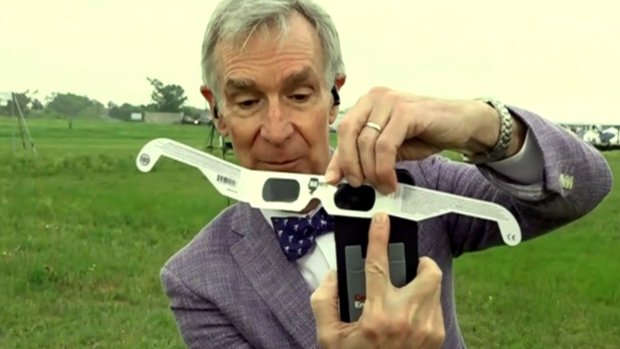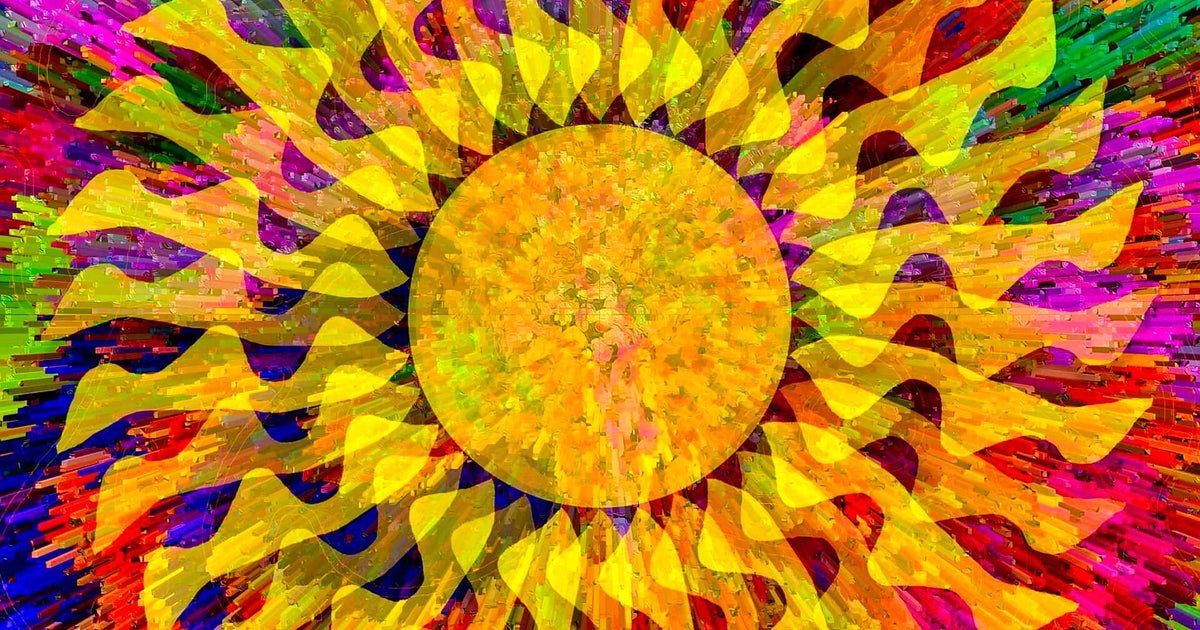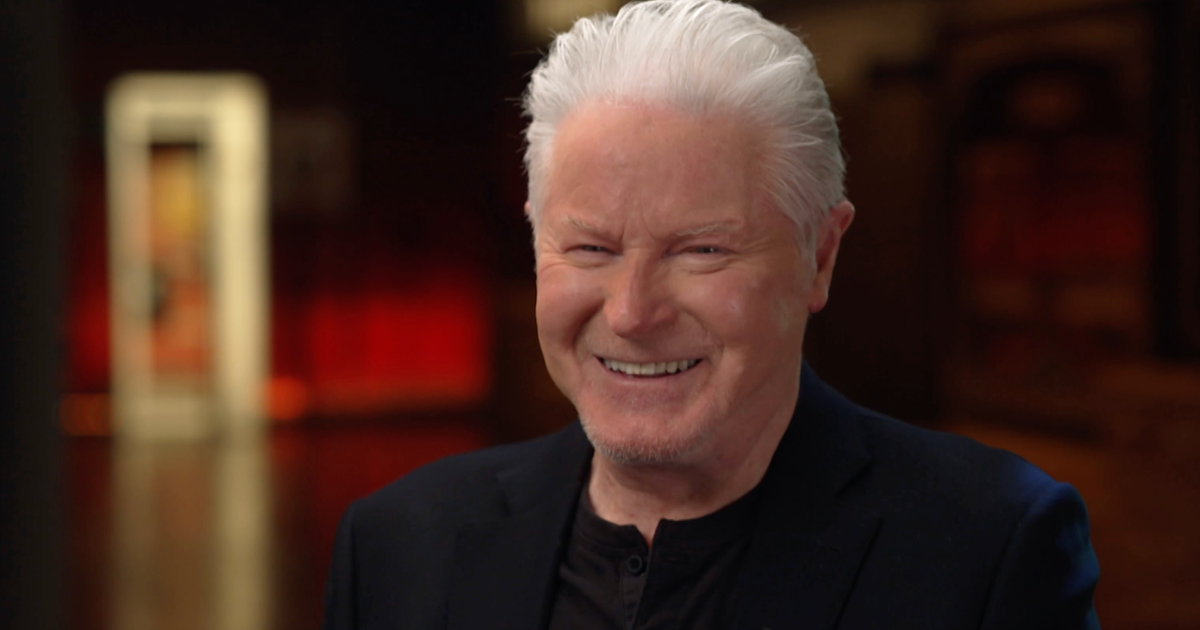Bill Nye the Science Guy shares tips for the total solar eclipse: "Be in the moment"
Portions of 15 U.S. states and over 31 million people are in Monday's solar eclipse path of totality, with millions more expected to travel to see the rare celestial event.
But what exactly is a solar eclipse? In a 1997 clip from "Bill Nye the Science Guy," Nye explained, "An eclipse is whenever sunlight is blocked. The earth casts a shadow on the moon, that's a lunar eclipse. When the moon casts a shadow on the earth, that's a solar eclipse. It's a big sunlight blocking party!"
Bill Nye, now the CEO of the Planetary Society, a nonprofit supporting science exploration, joined "CBS Mornings" Monday from Fredericksburg, Texas, which is in the path of totality.
"It's not like a 'cloudy day' dark," Nye said. "The crickets start cricketing. The birds start chirping. You often get a little breeze because of the cooling of the ground locally. It's amazing!"
Nye stressed the importance of eclipse safety glasses for everyone planning to view it.
"These are about 100,000 times darker than sunglasses," he said about his pair of eclipse glasses. Nye demonstrated, holding his cell phone light against the eclipse glasses lens. You can't see the light through them.
"This is evidence of how dark these things are."
The science expert encouraged people to take in their surroundings during the celestial event.
"Everybody try to be in the moment," he said.
Nye said it's a great shared experience.
"You want to experience this thing together and then just really take it in. Don't fool with your phone, just be there. It's just exciting," he said.
NASA estimates that 99% of people across the country will experience the solar eclipse either partially or completely. The next total solar eclipses in North America aren't predicted to happen until 2044 and 2045.




